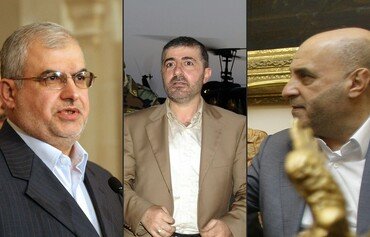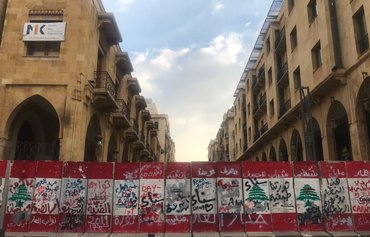The latest round of US sanctions imposed on Hizbullah are part of a serious effort to curb the party's influence and actions by targeting both its political and military wings, Lebanese analysts told Al-Mashareq.
The US Treasury on July 9th imposed new sanctions on Hizbullah, designating for the first time elected officials from the movement.
Lebanese MPs Amin Sherri and Muhammad Hasan Raad were accused of "exploiting Lebanon's political and financial system" to benefit Hizbullah, according to a Treasury statement.
Also blacklisted was Wafiq Safa, a top Hizbullah security official close to the movement's leader, Hassan Nasrallah.
The Treasury said its Office of Foreign Assets Control (OFAC) had designated key Hizbullah political and security figures who had been "leveraging their privileged positions to facilitate Hizbullah’s malign agenda and do Iran’s bidding".
No distinction should be made between Hizbullah’s military and political wings, it added, calling on the Lebanese government to sever its contacts with the designated members of Hizbullah.
Last year, the US and six Gulf states imposed sanctions on Hizbullah leader Hassan Nasrallah, his deputy Naim Qassim, and three other Shura Council members as part of efforts to step up economic pressure on Iran and its allies.
Top-level politicians designated
"The US administration is determined to dry up Hizbullah's funding sources and the ability of its political and security leaders to operate in Lebanon and abroad," said former Lebanese MP Fares Souaid of the March 14th alliance.
The designation targeted Raad, who heads Hizbullah’s parliamentary bloc, and Safa, the official heading its liaison and co-ordination unit, he told Al-Mashareq.
This sends a message "not only to Hizbullah, but also its friends and all MPs, parliamentary blocs and political movements who co-operate with it", he said.
The sanctions make it clear that no distinction can be made between the party's political and military wings, Souaid added, noting that "the sanctions say to the Lebanese that if you hand your cards to Hizbullah, you will be headed for instability".
The new sanctions directly target top-level politicians, including Safa, who is responsible for communicating and co-ordinating with political, governmental and security entities, said Naufal Daou, one of the founders of Lebanon's Assembly for Sovereignty.
The Treasury's statement called on the Lebanese government to sever its relations with those listed, "which raises questions about how it will handle the sanctions", he said.
Will the interior, defence and other ministries continue to stay in contact with, co-ordinate and meet with Safa for instance, he asked, or will their relations with him be severed?
Daou also raised the question of whether Raad will continue his previous political activity or if the sanctions would isolate him politically.
"The answer to these questions must come from the state and the government, because the statement called on them to sever their relations with those officials," he said.
Sanctions 'can be expected to expand'
The designation intimated that the eyes of the US administration will be watching even those who represent Hizbullah in the government, Daou said.
"Based on the course of events, the sanctions can be expected to expand", he said, adding that they may be extended to the party’s allies and supporters who do not comply with the sanctions.
Dealing with the sanctions requires prudence, he said, "wherein the state’s interests are separated from the interests of Hizbullah".
The sanctions "come in the context of the campaign of gradual escalation of sanctions imposed on the party", said political analyst Ali al-Amin, who opposes Hizbullah.
They "affect the links between the party and the state", he told Al-Mashareq, noting that the Treasury statement was "very clear in terms of warning the government against co-operating with those covered by the recent sanctions".

![Lebanese MPs Muhammad Hasan Raad (R) and Amin Sherri have been included in recent US sanctions against Hizbullah. [Photo circulated online]](/cnmi_am/images/2019/07/19/19064-Lebanon-Hizbullah-sanctions-600_384.jpg)





